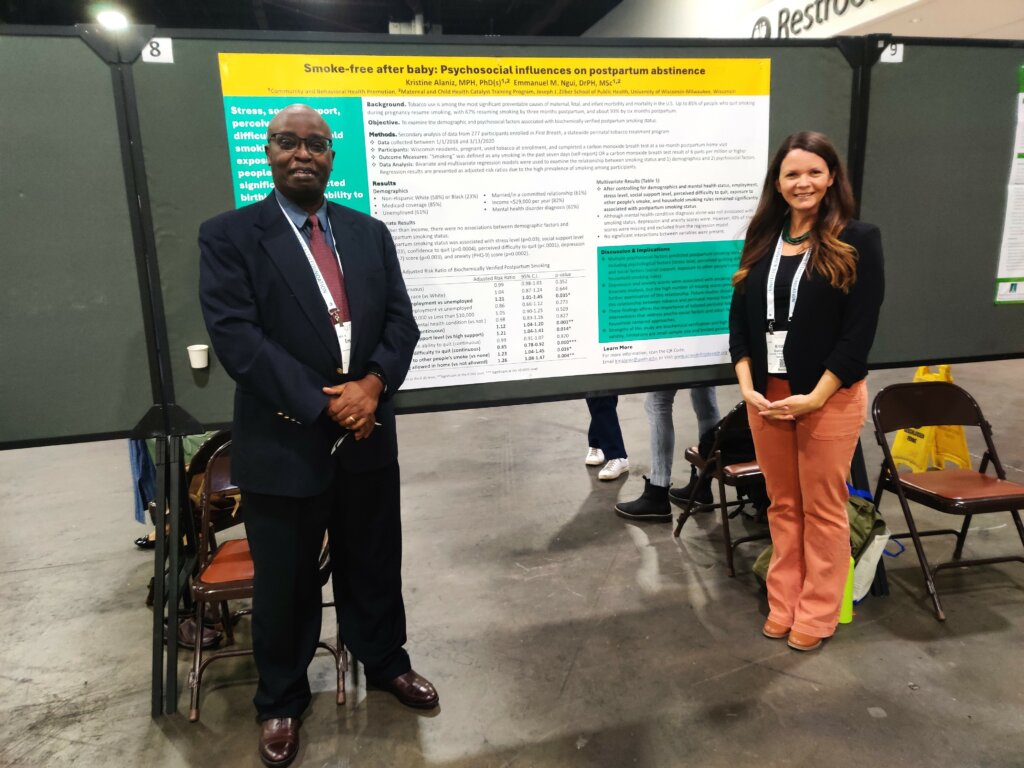Unlocking Insights: Collaborative Analysis of First Breath Data
In the world of public health research, data is the key to understanding and addressing complex issues. For over a year now, a collaboration has been underway, bringing together the expertise of Dr. Emmanuel Ngui from the Zilber College of Public Health and Kristine Alaniz from the Wisconsin Women’s Health Foundation.
Their mission? To conduct a comprehensive analysis of First Breath data collected pre-COVID-19 that would provide insight to help prevent relapse postpartum. (First Breath data pre-COVID was used because it was biochemically verified data.)

Investigating Postpartum Smoking Abstinence: Insights from First Breath
Why It Matters
Smoking cessation during pregnancy is a significant achievement, but many individuals relapse during the postpartum period. First Breath focuses on long-term change, aiming to understand why some participants relapse while others maintain abstinence, even with the same intervention.
Reviewed:
- Demographic: The investigation explored whether there were differences in postpartum relapse rates by certain demographics (age, race, ethnicity, income, education level, etc.) In this study, these factors did not have much – if any – of an influence on people’s smoking status.
- Psychological Factors: Stress levels and perceived quitting difficulty played a crucial role in determining postpartum smoking status.
- Social Factors: The level of social support, exposure to other people’s smoke, and household smoking rules were also significant predictors.
These findings underscore the importance of tailored perinatal tobacco interventions addressing psychosocial factors and adopting family or household-centered approaches.
American Public Health Association (APHA) Conference
The results of this analysis were recently presented as a poster at the APHA 2023 conference in Atlanta. The poster presentation served as a platform to showcase First Breath’s work to public health colleagues from around the world. Colleagues were impressed with First Breath’s mission and expressed keen interest in the study’s results.
Next Steps
The results can be applied immediately to enhance First Breath’s efforts in preventing postpartum relapse. While the poster presentation provided a snapshot of the findings, the First Breath team is actively working to publish the full results.
As this collaboration continues, the team is committed to furthering their understanding and seeing how their research findings could inform policy, improve programs and ultimately benefit the lives of mothers and children in Wisconsin.

Poster Presented at APHA Conference in November: